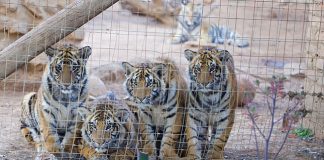
Photo: Office of the Premier - North West Province
The Ditsobotla Local Municipality cannot afford to allow Clover to close and relocate its operations as this will have a devastating effect on over 300 families, according to the Premier of North West, Job Mokgoro.
“Government depends on private companies that invest in our towns to create jobs. The closure of the Clover [plant] will have a negative economic impact on the Ditsobotla Local Municipality. We are going to do everything in our power to save the over 300 jobs,” he said in a statement.
Mokgoro also pointed out that the closure of the plant would ultimately have an impact on local farmers, as it processed about 350 000ℓ of milk every day.
About 250 000ℓ of this milk was sourced from KwaZulu-Natal and about 100 000ℓ from North West farmers, the statement said.
Mokgoro was responding to Clover’s recent announcement that it would close down its cheese manufacturing plant in Lichtenburg and move it to Queensburgh near Durban.
The company cited disruptions in its operations due to poor water and electricity supply as some of the main reasons for the decision. It also indicated that the poor road infrastructure had increased operational costs tremendously, and was affecting its suppliers.
According to the statement, Clover employed about 380 permanent employees and about 40 temporary employees at the plant. It further employed about 20 general workers, 20 truck drivers and truck cleaners, while other employment opportunities emanated from the enterprise development programme such as sub-contracting.
Johan Strydom, a dairy farmer near Lichtenberg, told Farmer’s Weekly that Clover’s decision was not a shock to dairy farmers in the area, but rather to the municipality and the more than 300 employees who would lose their jobs.
According to Strydom, dairy farmers were informed of Clover’s decision to close the factory in 2019, due to the deterioration of the town and the area’s municipal services.
He added that dairy farmers would still be able to supply milk until later this month when the last section of the factory would be shut down.
He explained that the milk allocated to the Clover plant in Lichtenburg would be reallocated by Dairy Farmers South Africa to the Clover factory in Bloemfontein, as well as the Gaborone factory in Botswana.
Although there were still some aspects that needed to be clarified, such as possible price structure adjustments, he stressed that the closure of the factory would not have a major impact on dairy farmers in the area.











